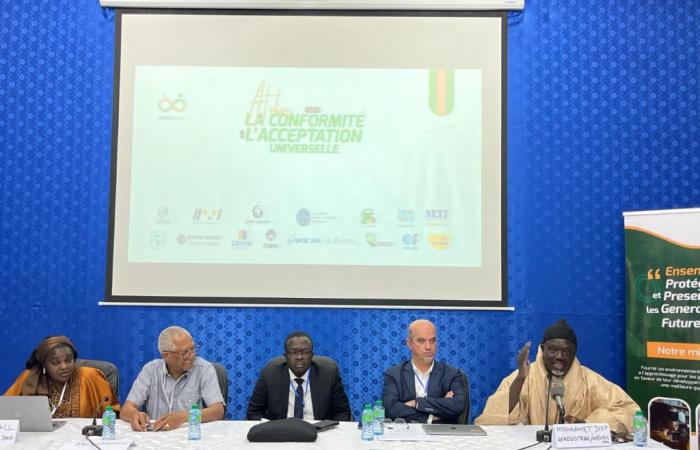A training workshop focused on universal acceptance (AU) was launched this Saturday, April 12 at UCAD II. Organized by the NGO Bokk Jang in honor of this day dedicated to the AU, the event aims to strengthen the skills of systems engineers and IT professionals. Its objective is to integrate AU standards into local digital infrastructure, thus ensuring an inclusive and truly multilingual internet for everyone, regardless of the language or format of domain names.
Based on the words of Alex Corenthin, a retired teacher-researcher from the Dakar Polytechnic South School, Sud Quotidien reports: “The development of the Internet has been dazzling in recent years. It is no longer reserved for an elite, but accessible to the average citizen. It is therefore crucial that everyone can express themselves in their language, in their singularity. According to him, local human resources are responsible for finding solutions adapted to this new reality, stressing that this would have a considerable impact on a responsible and inclusive use of digital in Senegal.
This type of training is crucial for technicians and students so that they can acquire the tools necessary for the implementation of the AU in messaging systems and on web platforms. Corenthin also pleads for “the use of local languages such as Wolof, Sérère, Diola, or Peul in domain names, and even Wolofal, Wolof transcription into Arabic characters. »Note that this initiative aligns in a strategic partnership with artp, Icann, and other partners such as Gainde 2000, Gofar Holding, Guindo, CF Digital Edge, Expresso, and Wango.
According to Coura Fall, Vice-President of Bokk Jang, interviewed by Sud Quotidien, the transition to this practical phase is essential: “Since 2024, we have led awareness campaigns on universal acceptance. Today, we are going to the practical phase with this workshop that brings together engineers, developers, civil society players and digital specialists. »»
The fundamental principle of universal acceptance is that all domain names and email addresses, including those using non-Latin characters, new or long extensions, or even local scripts or recent extensions, are recognized, accepted and used uniformly.






